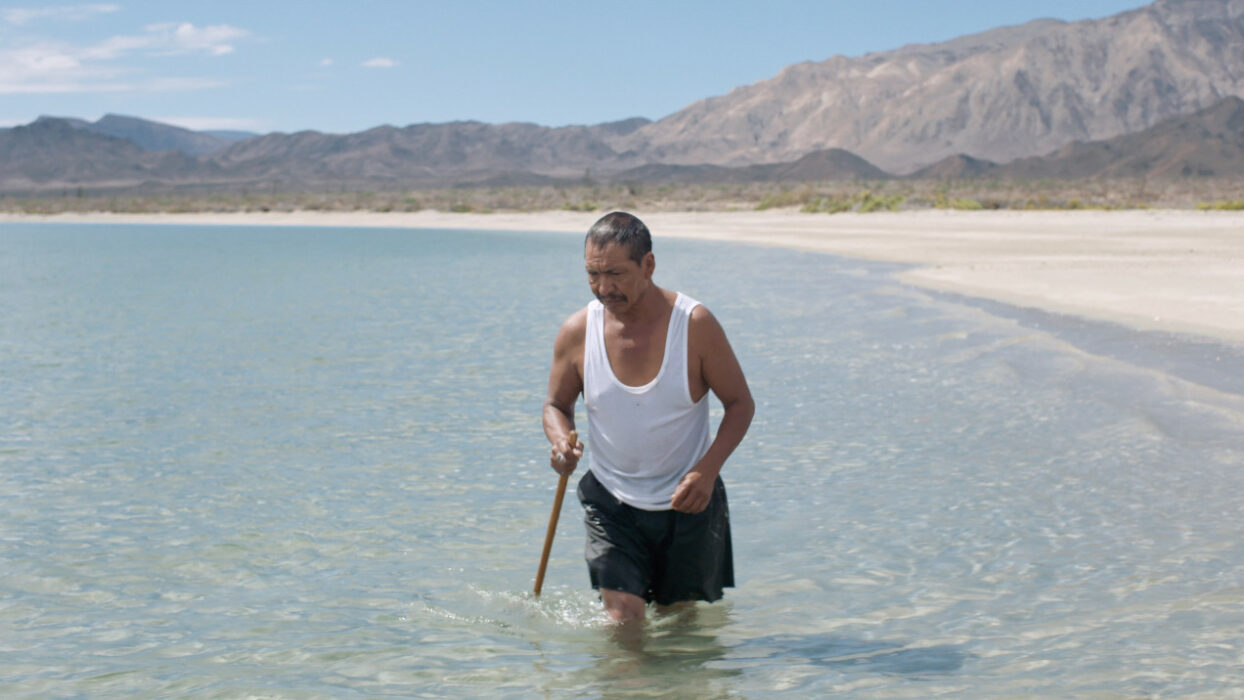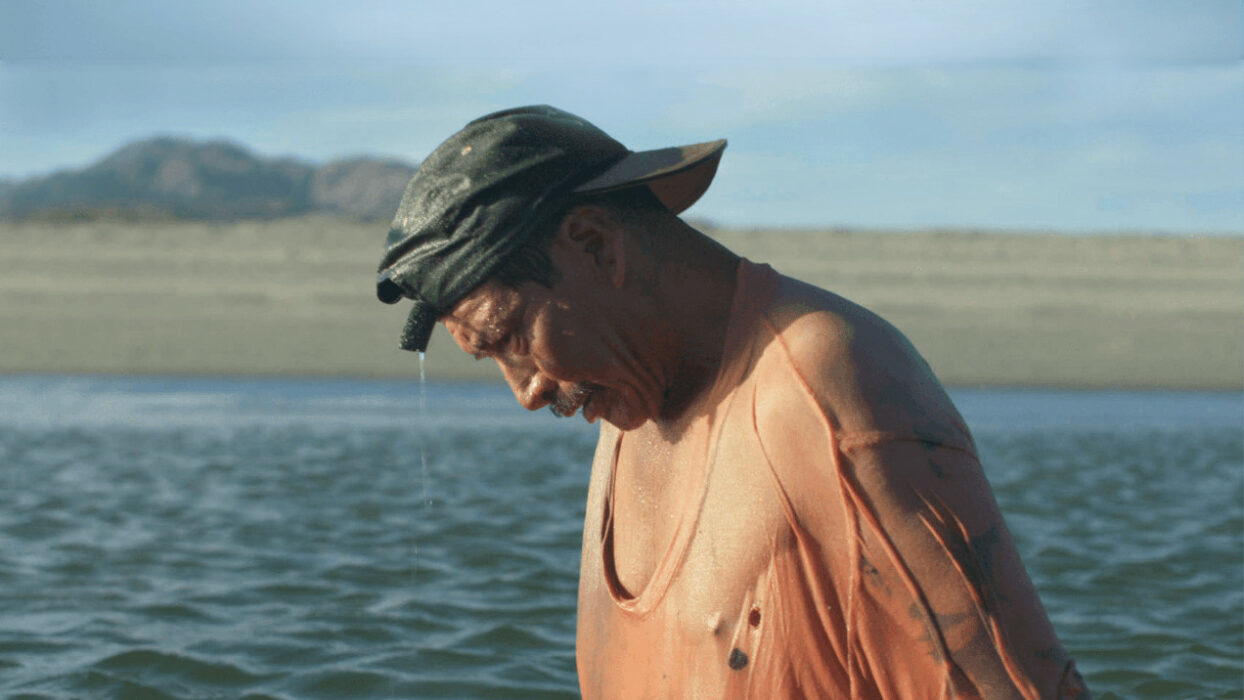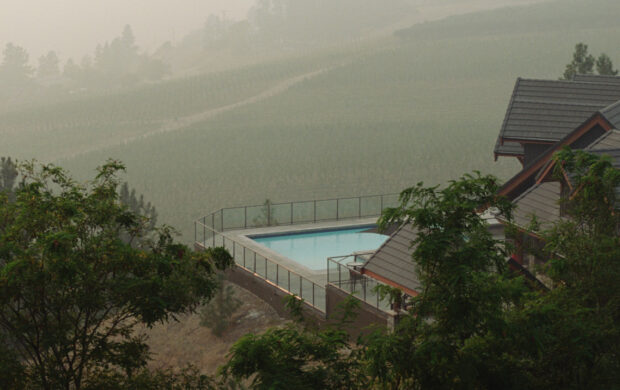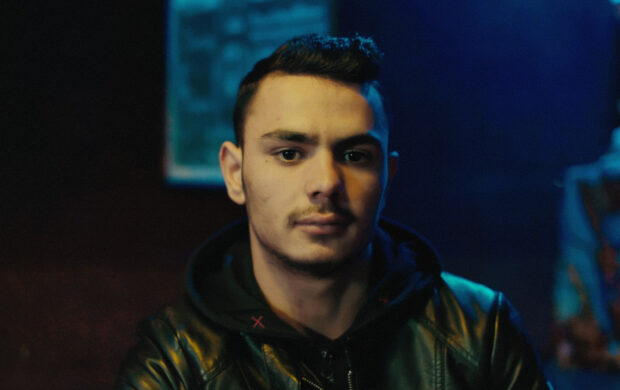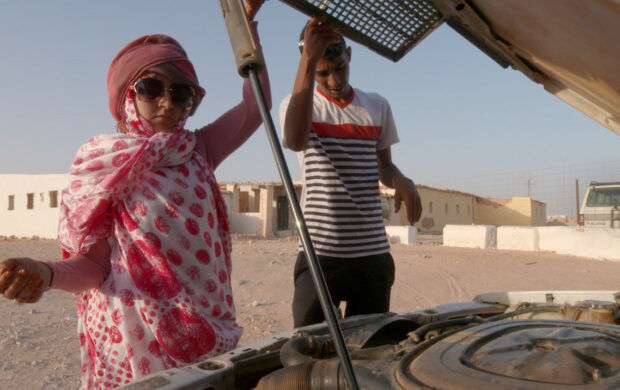Una corriente salvaje
The ocean, the beach, and immediately after the desert. A grandiose site, a desolate territory, where two men, Chico and Omar, seem to be stranded, surviving thanks to their fishing, solitary, isolated. Out of this world, out of time, where day turns to night without any passage of time, where the landscape only seems to exist through the wind, the light, the breaking waves. We are elsewhere, we are nowhere. Omar lives in a camping-car, Chico in a small hut on the beach. In this intimate space, open to everyone’s gaze, a story of attraction and sensuality unfolds between them, but never crystallises into love, or even real friendship. Yet, they cannot do without each other and from their daytime fishing to night-time crab-hunting, days and nights follow on, stretching out into long conversations – moments to enjoy seducing each other, being together, consoling each other in their common isolation and sharing their struggles and inner demons. With an almost indecent meticulousness and insistence, the filmmaker portrays these bodies toiling to fish, loosening up when at rest. This reinforces the intimacy and emotional tenderness between the two characters, and could at times make the spectator feel like an uncomfortable witness. The whole force of cinema is that it places us in this uncertain place where it is impossible to know whether this is paradise or hell, whether this whole story only exists in the eye of the camera, simply as the product of its author’s fantasy. She nonetheless achieves her ambition to make us feel human sentiments, disordered, seething and unpredictable.
Catherine Bizern
Romy Tatiana Graullera
Diego Romero Suárez-Llanos (A.E.C.)
Javier Umpierrez
Paloma Lopez, Sergi Dies, Omar Guzman
Tatiana Graullera, tatiana@milmillones.mx
